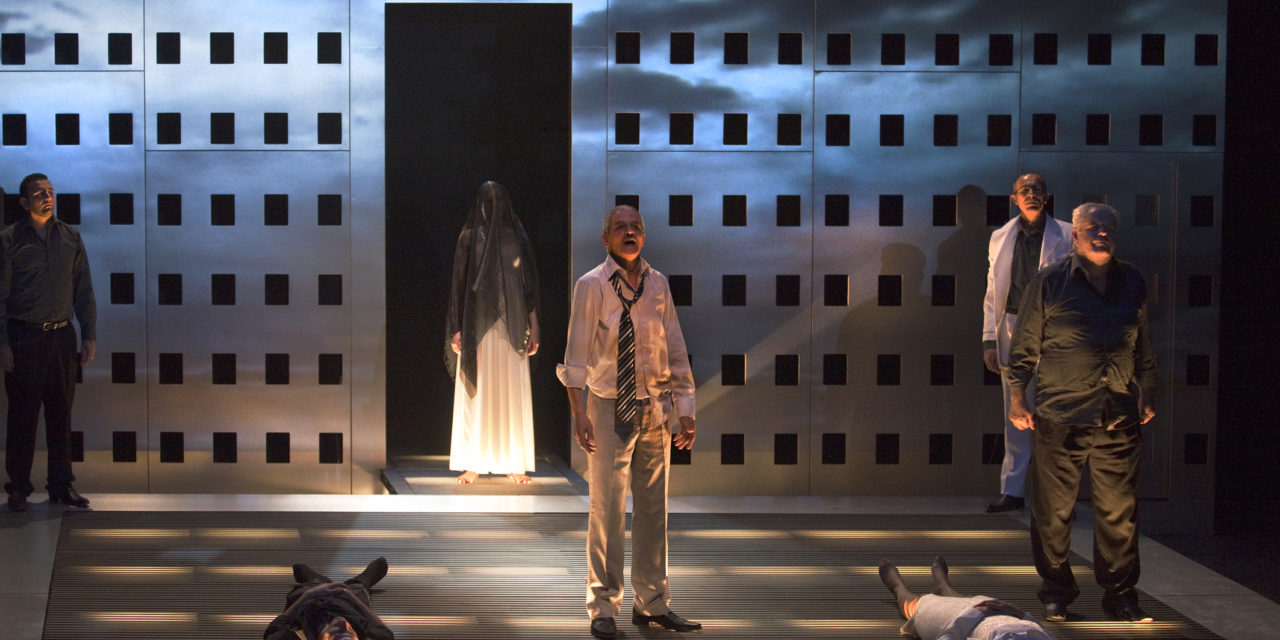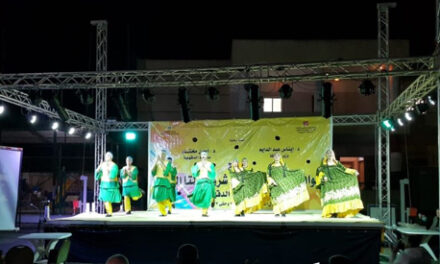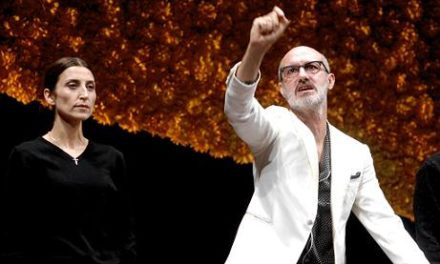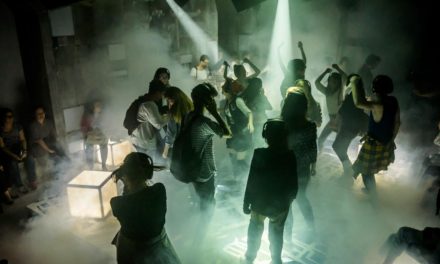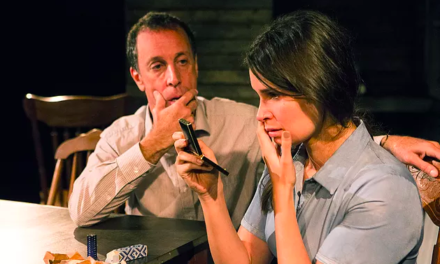Adel Hakim was a French-Egyptian actor, playwright, pedagogue, and director. He was well-known for his work in France, the Middle East and Latin America (especially Chile and Uruguay). Adel was, alongside Élisabeth Chailloux, artistic director of the Théâtre des Quartiers d’Ivry, which became in 2003 a National Dramatic Centre (Centre Dramatique National).
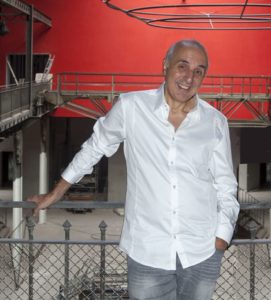
Adel Hakim in 2016, Manufacture des Œillets, Ivry-sur-Seine. Photo: Nabil Boutros
“Homme de parole, de dialogue et d’écoute, Adel Hakim nous a quittés” (“A man of his word(s), a man of dialogue, a man who listened, Adel Hakim has left us”). This is how the Editorial Board of La Terrasse, a French theatre newspaper, has said its goodbyes to Adel. A passionate man admired by many, his work as a theatre director and especially, as a pedagogue, will leave an indelible trace on the French theatre milieu. He died on August 29th, surrounded by family and friends, after three years of fighting against a degenerative disease (Amyotrophic Lateral Sclerosis). A few days earlier, Adel had written a public letter entitled “Libre Adieu,” “My free goodbyes,” in which he expressed his wish to die in an assisted-suicide facility in Switzerland since euthanasia is still illegal in France. Unfortunately, his health condition prevented him to safely arrive in Zurich (after an 8-hour drive in an ambulance from Paris) and passed away in his home in Ivry-sur-Seine.
Born in Cairo in 1953 from an Egyptian-Lebanese father and an Italian mother, Adel moved to France in 1972. He studied Economy at the HEC Jussieu and in 1984 obtained his Ph.D. in Philosophy at La Sorbonne. Ever since he arrived in Paris, he fell in love with theatre. He attended workshops from Lee Strasberg and Ariane Mnouchkine. It is in one of her courses that Adel met his friend and colleague Élisabeth Chailloux. In 1984 they founded “Le Théâtre de la Balance,” and eight years later, were both appointed artistic directors of le Théâtre des Quartiers d’Ivry, created by the famous Antoine Vitez.
During his fruitful career, Adel staged and performed in more than sixty plays. He also taught in the most important theatre schools in France, Argentina, Mexico, and Chile, among other countries. He also organized le Théâtre des Quartiers du Monde (A play on words, replacing Ivry with “the world”), an encounter of international playwrights. The variety of styles and authors in his work reveals not only his intelligence but also his intuition. He was capable of recognizing young talents all around the globe, and he became a mentor to many of those new artists.
In 2011, he staged Sophocle’s Antigone in Arab, with The National Palestinian Theatre. Six years later, this time in France, the same company performed Des Roses et du Jazmin, written by Adel himself. It was the last performance he directed. The play portrayed the lives and stories of Palestinians and Israelis between 1944 and 1988. Three generations of people put together in a tragic saga, reflecting on the real tragedy that unfolds every day in the Middle East.
Political but not partisan, Adel’s life’s work could maybe be summarized in a search for justice and solidarity both in life and art. The way in which he taught young actors, his work’s ethics, his interest toward cultural and artistic difference. One of his closest collaborators and friends, the Chilean actor and playwright Pablo Dubott, wrote him an open farewell letter in which he accurately describes Adel: “He spoke five languages, but with that empathy of his, I have the impression he spoke a thousand languages. He traveled around the world doing theatre, almost thirty countries, almost a hundred cities in total. My jaw dropped when I read, a few weeks ago, the list of all the countries he toured doing theatre. I tried to compare myself to him, with a spoiled rivalry. And I felt that fireball inside of me again. On that list, I saw so many cultures, so many differences. I saw his dream project, Théâtre du Quartier des Mondes. I have no air in my lungs. I have no color in my soul.”
The loss of Adel Hakim is a sad event, not only in France, not only for his family but also around the world, and for all those artists and people he encountered in his path. His final letter is nothing but a token of his profound humanism, his love for life and art, and the expression of his character: “There’s no need to be anxious about death. We have to accept it because it is an inevitable transition to the afterlife. None of us is immortal. This is why we should live our life with pleasure, solidarity, sharing with others and helping each other, especially those who need it the most, the migrants, and the hopeless.”
This post was written by the author in their personal capacity.The opinions expressed in this article are the author’s own and do not reflect the view of The Theatre Times, their staff or collaborators.
This post was written by Andrea Pelegri Kristić.
The views expressed here belong to the author and do not necessarily reflect our views and opinions.

